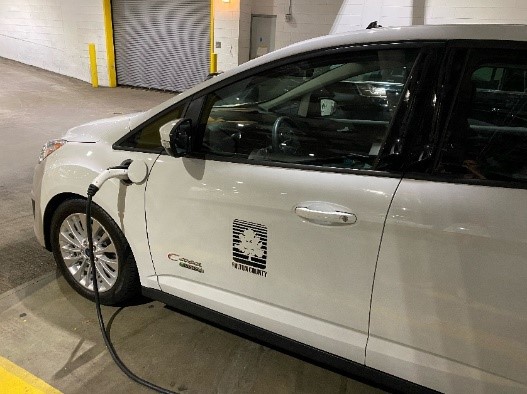Sustainability Plan
Sustainability and Resilience Plan
On February 16th, 2022, the Fulton County Board of Commissioners adopted updated goals for the 2019 Sustainability and Resilience Plan. The original plan with updated goals is available here.
The Plan’s vision is for Fulton County to thrive as the premier county in Georgia for sustainability and resilience, protecting residents, visitors, and environmental systems. See below for more information about the Plan’s six priority areas.
Sustainability and Resiliency plan
Climate Change Mitigation
Climate Change Mitigation has two primary goals.
1. Reduce county building energy use 50% by 2030 compared to 2018.
The Department of Real Estate and Asset Management has many projects underway that reduce energy use, including:
• Upgrading each of the county’s libraries to be LEED-certified, which requires energy efficient equipment and other sustainable features
• Designing the new Animal Services Facility to be LEED Silver
• Upgrading the HVAC equipment and Building Automation Systems at the Government Center, Justice Center, and Juvenile Justice Center
2. Offset 25% of the county’s electricity use with solar by 2030.
The county currently has solar panels on eight buildings and is evaluating solar for 16 additional locations. One installation is owned by the county, and the remaining seven are leased through a Solar Energy Purchase Agreement. To date, the county’s solar installations have produced over 1 million kWh of electricity and saved over 1.5 million pounds of carbon dioxide equivalent from being emitted into the atmosphere.
Social Equity and Smart Transit
1. Transition 25% of light-duty administrative vehicles to electric vehicles (EVs) and plug-in hybrid electric vehicles by 2030.
Fulton County currently has two plug-in hybrid electric vehicles in its fleet. Each of these vehicles has their own level 1 charging station.
In 2023 Fulton County partnered with the Environmental Defense Fund to have a fellow evaluate the county’s fleet and create an EV Transition Plan. County leadership is considering the options provided in the plan.
2. Install EV charging equipment at all viable county facilities for public and employee use.
The Department of Real Estate and Asset Management is currently pursuing a contract in which EV charging station vendors will install, own, operate, and maintain public EV charging stations on county property at no cost to the county.

High-Performance County Infrastructure
1. Design and construct all capital projects over 10,000 square feet to meet high performance green building standards like LEED.
The county recently completed 33 LEED-certified projects at 32 libraries and the new Animal Services Facility.
2. Establish a sustainable purchasing policy such that 100% of office, custodial and hospitality supplies are sustainable by 2030.
In 2019 the Board of Commissioners passed a resolution to phase out the use of single use plastics at county facilities.
3. Achieve a 50% waste diversion rate by 2030.
In 2022 the Department of Real Estate and Asset Management recycled over 60% of waste with its primary solid waste and recycling provider.
Education and Outreach and Green Jobs Training Placement
Fostering Partnerships
The Southeast Sustainability Directors Network (SSDN) is a collaborative network of local government sustainability professionals from across the region. SSDN hosts information sessions and facilitates peer-exchanges that help local governments meet their sustainability and resilience goals.
The county meets regularly with non-profits, universities, corporations, and other local governments. If you are interested in partnering with Fulton County on a sustainability initiative, please email sustainability@fultoncountyga.gov.
Budgetary Appropriation
• $300,000 in 2019 to establish the county’s first Resilience Hub.
• $50,000 to help with the purchase of the county’s first solar panel installation at the Cleveland Avenue Library.